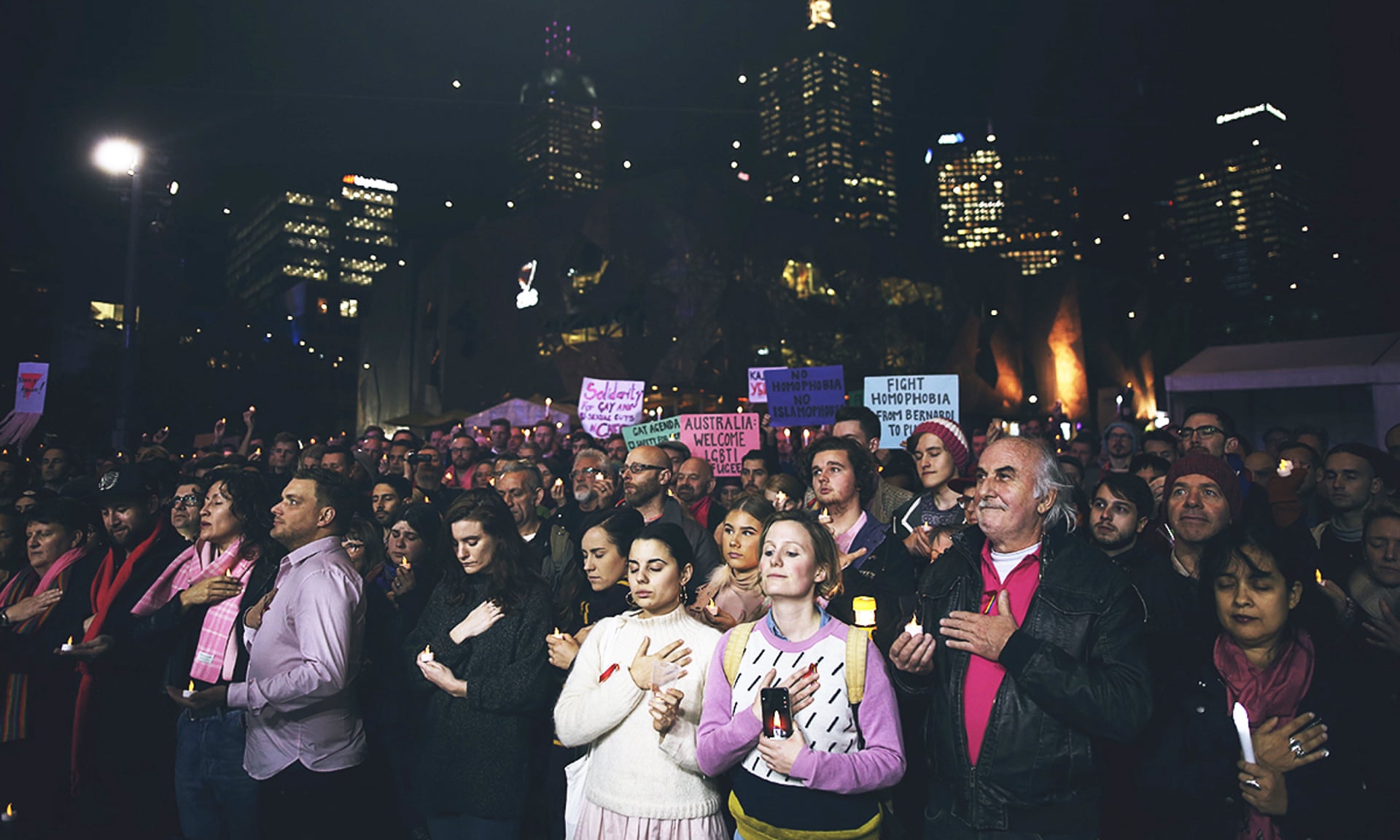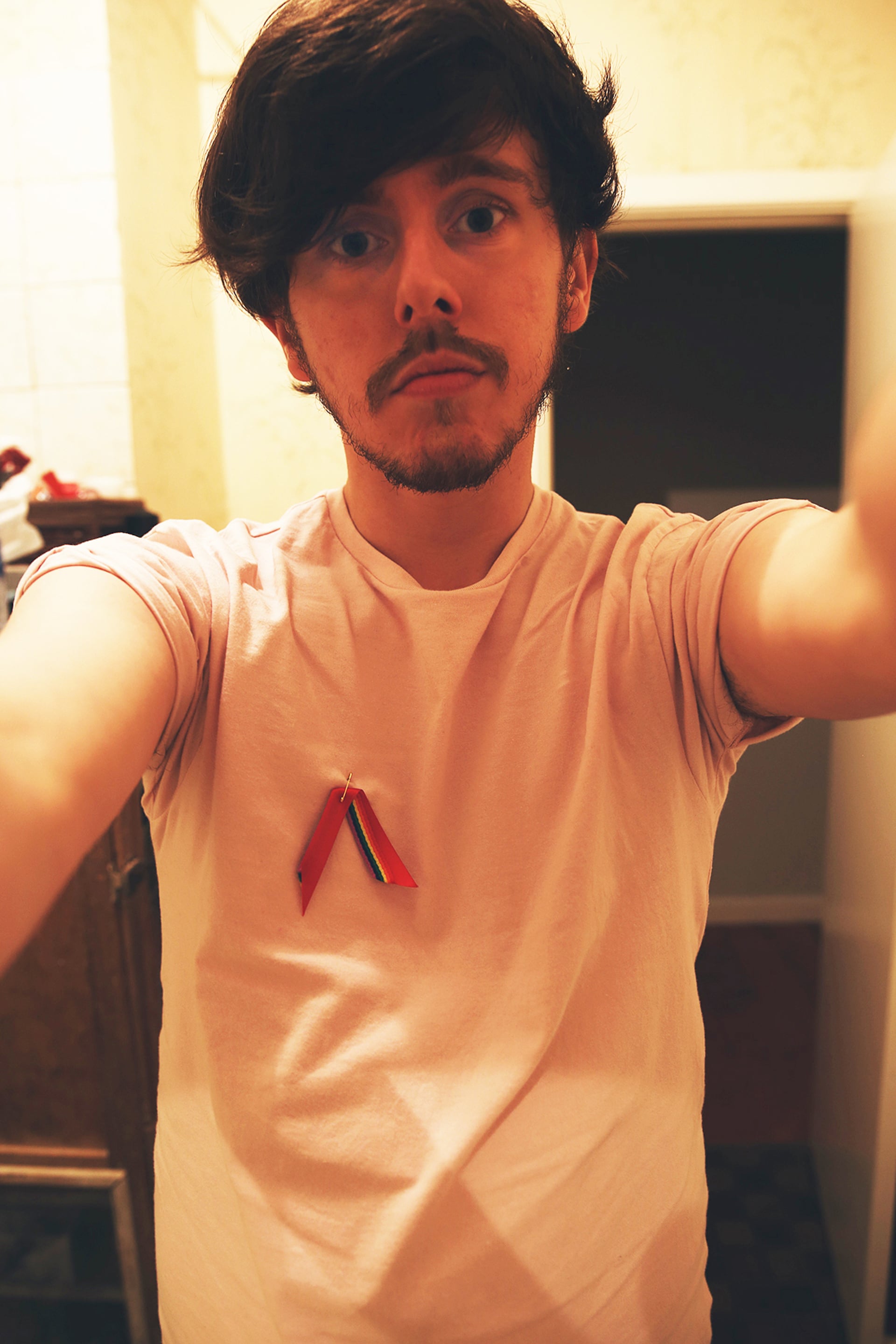--------
 |
| ‘The event was a vigil to mourn the deaths of the gay and bisexual men in Chechnya, who are, to this day, being detained and murdered by their governments and families, simply for being gay.’ |

The same-sex marriage debate continues to rage in Australia, despite the public shame of recently being labelled a second-tier nation by the International Lesbian, Gay, Bisexual, Trans & Intersex Association.
The ongoing storm of useless argument was displayed once more on Tuesday night, when Network Ten’s The Project aired a segment discussing an incident in which an anti-equality activist smashed a pie in the face of Alan Joyce to protest the Qantas CEO’s support for marriage equality.
In the segment, the Australian Christian Lobby’s Lyle Shelton argued that opponents of same-sex marriage were being forced to endure bullying for their views.
As a gay person living in Australia, I continue to be amazed and endlessly frustrated by the so-called “debates” we’re forced to endure on our screens – particularly when words such as “bullying” are tossed around exclusively by members of the heterosexual mainstream.
More than that, I’m baffled by the assertions of Lyle Shelton – and others in the anti-equality movement – that they’re somehow under constant fire from a violent tempest of harassment.
Because frankly, these people have no idea what real bullying looks like.
I’ll never forget my 13th birthday. Not for the presents or the cake, but for the fact that I was beaten so badly in the schoolyard that I was taken to first aid, all for being a little bit different. As I wiped my bloodied chin in front of the nurse while recounting the story, it took all of my strength not to burst into tears – because I knew exactly why they’d targeted me.
My adolescence was littered with these experiences: being shouted at in the street by boys much older than me, approached in the schoolyard by packs of lads, sinisterly being asked “So, I heard you’re a faggot”, and cornered in dark laneways by people who’d somehow heard of me, of my left-of-centre orientation, and took it as an opportunity to aggress.
Even now, in my mid-20s, I am left with at best a lingering anxiety, and at worst a crippling fear, about stepping onto a train, or a bus, because I don’t know who might be aboard. I count every face instinctively; fearing one might carry markers of my high school abusers. I sit up the front, making myself as small as possible, because I never know if I might be “spotted” – identified as a homosexual and subsequently bashed, all for being too visible.
On Tuesday night – at the same time The Project segment aired – I was walking home from a trip to inner-city Melbourne, when a group of lads proceeded to aggressively shout and holler at me, commenting on my “poofter shirt” and rainbow brooch. I ignored them and hustled away, knowing any reaction could trigger violence.
What they didn’t know was that I had come from an event in the city centre. My pink shirt was worn in solidarity, my brooch a symbol of gay pride. The event was a vigil to mourn the deaths of the gay and bisexual men in Chechnya, who are, to this day, being detained and murdered by their governments and families, simply for being gay. Simply for being just like me; the very me those street louts were snarling at, and the one Shelton wants to deny rights.
That’s what bullying looks like. That’s harassment. That’s a level of contempt that borders on criminal.
These aren’t my experiences alone. They are those echoed by the larger LGBTI community. Some are lesser, and some disastrously worse but all need be reiterated, so that the mainstream – and the Sheltons of the world – can understand why granting marriage equality not only allows us the right to marry, but further proves to our children that gay people are equal, and that difference is not alien.
If Shelton wishes to complain about the censure of his views and opinions, which only serve to further marginalise those already in strife, he best choose his words more carefully. Because his attitudes, as Guardian columnist Van Badham said to him on The Project, are retrograde and reprehensible, and the criticism he receives for these views looks nothing like the bullying I’ve endured my entire life.
No comments:
Post a Comment